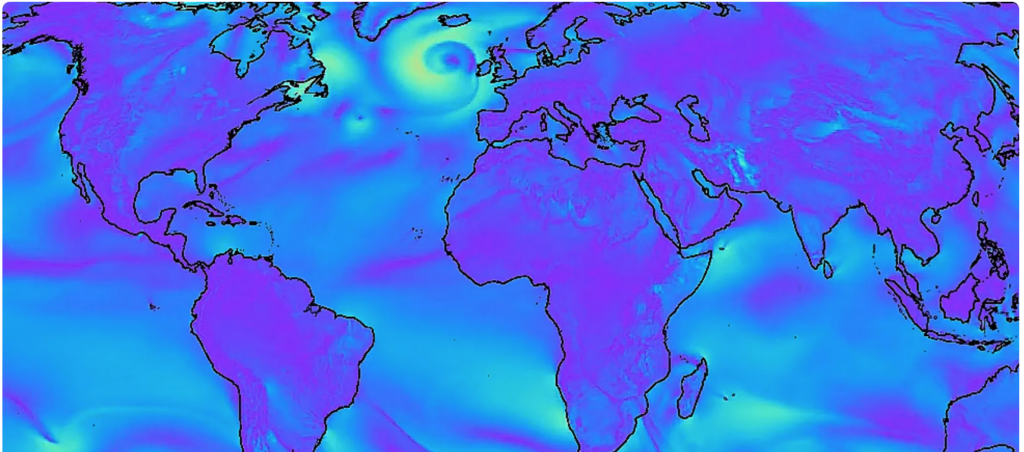
Google DeepMind’s GraphCast AI software produces weather forecasts for weather variables like wind speed much faster than traditional simulations. (Source: Google)
Google DeepMind’s GraphCast Beats Many EU Weather Models for Accurate Forecasts
If a hurricane was headed in your direction, would you rely on a national network’s weatherman or would you ask IBM where it will hit?
Google’s DeepMind AI unit in London followed the progress of Hurricane Lee last September when it was predicted to be 10 days out from landfall. Using DeepMind’s experimental software, GraphCast, they predicted that landfall would be much farther north than other weather modelers predicted.
“We were riveted to our seats,” says research scientist Rémi Lam.
A week and a half later, Hurricane Lee struck right at the spot GraphCast predicted: Long Island, Nova Scotia. The forecast enabled the unit to see in advance that population centers would be safe from the storm.
“It added to a breakthrough season for a new generation of AI-powered weather models, including others built by Nvidia and Huawei, whose strong performance has taken the field by surprise. Veteran forecasters told WIRED earlier this hurricane season that meteorologists’ serious doubts about AI have been replaced by an expectation of big changes ahead for the field.”
How They Did It
The above information comes from a recent article from wired.com. In it, we discover DeepMind was spot on with its weather predictions. And, what is more, the software GraphCast can be run on a laptop computer.
Today, Google shared new, peer-reviewed evidence of that promise. In a paper published in Science:
“DeepMind researchers report that its model bested forecasts from the European Centre for Medium-Range Weather Forecasting (ECMWF), a global giant of weather prediction, across 90 percent of more than 1,300 atmospheric variables such as humidity and temperature. Better yet, the DeepMind model could be run on a laptop and spit out a forecast in under a minute, while the conventional models require a giant supercomputer.”
Climate Change
Much of the data that GraphCast was trained on is the historical record of our weather patterns. However, the patterns are changing and might not be the best source to compare future patterns with. Researchers say that the DeepMind system’s ability to predict a wide variety of weather systems despite having few of each type in its training data, suggests it has “internalized the physics of the atmosphere.”
The ECMWF is creating its own AI weather forecasting model, inspired by GraphCast, betting the agency’s savvy with the physics of the atmosphere can help design a model that works even better.
Read more at wired.com







Leave A Comment